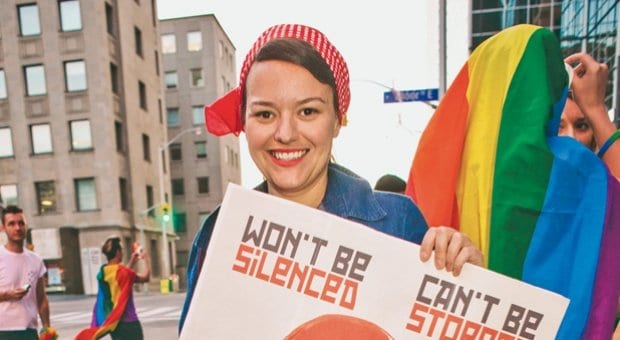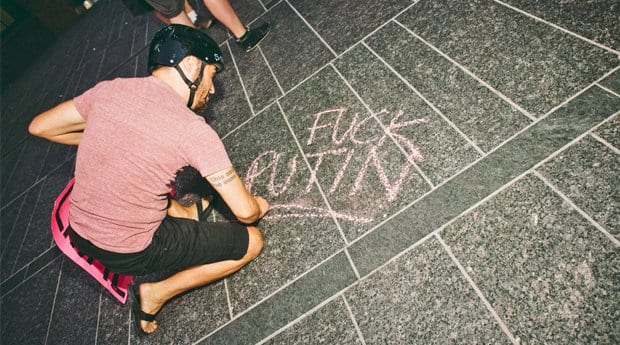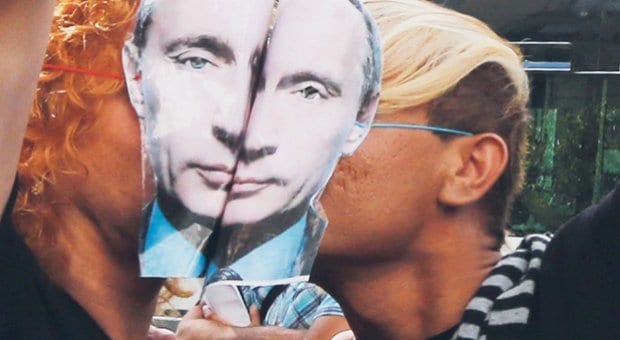
Throughout the year, activists around the world took to the streets to protest Russia’s anti-gay laws and increasing homophobic violence in the country. Credit: N Maxwell Lander

caption goes here*********** Credit: N Maxwell Lander
Before Russian President Vladimir Putin signed off this summer on a nationwide law to gag gay “propaganda,” cities such as St Petersburg tested the waters — and got away with it.
The barely audible international whisper against Russia’s anti-gay crackdown became a firestorm in June when Putin, seemingly oblivious to the backlash that would erupt, signed the law with the Sochi Olympics in sight.
Prohibiting “propaganda of non-traditional sexual relations,” the law is ostensibly aimed at protecting children from thoughts or images that might awaken any gay interests or give them the impression that such interests are as acceptable as more traditional forms of attraction.
Foreigners flouting the law with gay-friendly gestures face the prospect of 15 days in prison and deportation.
Mere months before Sochi’s opening ceremonies, Russia’s increasingly anti-gay stance provoked outrage, calls for boycotts, and kiss-ins around the world.
Putin and his entourage wondered what all the fuss was about.
While one Vitaly (sports minister Mutko) told the world to calm down, a second Vitaly (St Petersburg politician Milonov) pooh-poohed reports of violence against gay people as “fake information,” adding that it’s gay people who perpetrate violence against straight people.
For his part, Putin insists that he’s just protecting the children. But his platitudes are inconsistent with the images emerging from Russia: beaten and bloodied gay activists; gay teachers dismissed from their jobs; gun and gas attacks at a Moscow gay club; bomb threats against the Side by Side LGBT film festival; the rise of the violent “Occupy Pedophilia” group that seems to lure, then torment gay people (or worse).
The likelihood of more anti-gay laws looms, with one bill proposing to remove children from gay parents in Russia.
The International Olympic Committee seems content to accept “assurances from the highest authorities in Russia” that their Olympics will be welcoming, regardless of sexual orientation. At least the Nobel Committee refused a Putin nomination for this year’s Peace Prize for his “efforts to maintain peace and tranquility.”


 Why you can trust Xtra
Why you can trust Xtra


